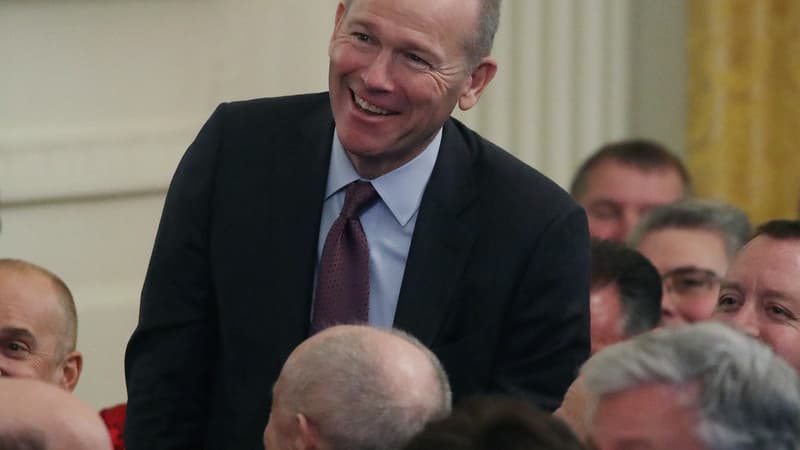David Calhoun warns the airline industry. In it financial times, the CEO of Boeing believes this Tuesday that there is no cheap way to decarbonize the sector. According to him, the prices of sustainable aviation fuels (SAF) based on treated oils or fats will “never” fall to the level of the prices of conventional kerosene-based fuels.
If biofuels get ever cheaper thanks to economies of scale, “I don’t think we’ll ever reach the price of Jet A (the most widespread kerosene-type fuel, editor’s note). I don’t think that will happen one day.” says David Calhoun.
SAFs now account for less than 1% of global aviation fuel consumption and are at least twice as expensive as traditional fuels.
The Boeing chief’s statements come at a time when air transport is under pressure from public authorities, in particular the US and Europe, which encourage it to speed up its green transition and reduce its carbon footprint. In fact, commercial aviation is often singled out for its environmental impact. In France, the sector accounts for about 5% of CO2 emissions.
Business aviation, whose Geneva show was disrupted by activists on Tuesday, is also in the crosshairs of climate advocates. In France, environmental deputies introduced a bill (not adopted) in March aimed at banning private jets.
“Net zero CO2 emissions” by 2050
However, air transport players do not lack ambition. By the end of 2021, airlines around the world pledged on Monday to achieve “net zero CO2 emissions” by 2050 to fight global warming.
This “bold” goal is also a “necessity”, which “will ensure the freedom to fly for future generations”, argued the director general of the International Air Transport Association (Iata), Willie Walsh, before the leaders of the sector. meeting in Boston (USA).
To achieve their goal, the companies rely 65% on SAF, but also on better operational efficiency (trajectories, ground operations, etc.), as well as a carbon capture and emission allowance trading system. Estimated cost by Iata: 1.550 billion dollars in 30 years.
Source: BFM TV


